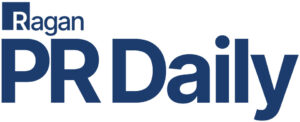The new agency contract
Beneath every decision today, there are festering anxieties.

Dan Mazei is principal at All Tangled Roots. He previously worked at brands including Tinder, Activison Blizzard and Reebok.
Your procurement lead e-mails you to check-in. You’re coming up to the end of your agency’s contract, and it’s time to evaluate.
You look back through your quarterly reports, the coverage summaries, the recommendations for the new year. There are no real red flags or disastrous misses; you rationalize that the moments of frustrations can be traced back to internal timing shifts, re-briefs, lack of clarity. The work has been solid.
So… what is this nagging feeling?
Beneath every decision today, there are festering anxieties. Work-life balance and the morality and practicality of return-to-work requirements. Stagnant salaries. Rampant layoffs. Shrinking dollars and, in America, early signs of an emotionally taxing election.
The fact is, brands cannot ultimately succeed if their leaders are mentally and emotionally taxed beyond their means.
As service providers, agencies and consultants have been trained for a generation to be strategic partners, thought leaders, problem solvers and resolute warriors. But missing in that equation is caring, understanding and empathy. These are fundamental tenets of humankind, not luxuries afforded to the clients with the largest retainers.
It’s only prudent, then, that decision makers consider when selecting or retaining their agency partners how those teams treat them as individuals.
So, as a leader, how do you know when it’s just not right?
Firstly, consider this: If you sat down with your agency lead over a coffee tomorrow morning and asked, “What are the biggest challenges I’m facing right now,” what would you hear in response? The answer should not be a recitation of your last status call agenda, nor should it be a summation of your company’s operating environment. Both of these are data sources for problem solving, but they are not reflective of a deep personal understanding of you and your daily realities.
Next, think about the questions you get back from your agency or consultant when you present a new challenge. You should certainly remember receiving thoughtful, strategic questions. But are you hearing questions about your existing workload, and how this challenge fits into your priorities? More specifically, do you expect your partner to proactively lighten your burden, so you can be a better operator internally?
And when you’re closing your laptop on a given day, are you doing so knowing that your partner is thinking of ways to be more efficient and flexible? Past the timelines and the hard deliverables for your work, do you see your partner putting in the time and effort to streamline the process; to make the work more easily consumable for you and any other stakeholders; to get you the materials early so you have more runway for review and improvement?
The value exchange of the client/partner agreement demands that these questions end with a resounding, “yes.”
Servicing an in-house leader today requires an active understanding and appreciation for the quiet noise – the things that may not be captured in an e-mail or noted on a call, but are nonetheless impacting the way the work is actually getting done. Drawing out and analyzing the quiet noise is not easy, but great partnership requires it. It is both good business and good ol’ fashioned civility for your partner to ask questions beyond the brief, and to think from your perspective as a leader, people manager and peer. They should be considering and framing their questions around how you’ll be managing your internal team on this work; around the relationship dynamics of any other stakeholders who will see this work; around the toll this work may be taking on your overall stability. This is the quiet noise. This is what makes already challenging work that much harder, and it can only be seen through the eyes of partners who rightfully prioritize caring, understanding and empathy in their service model.
If this sounds foreign to you as a leader, it doesn’t mean your agency or your consultant is bad. It simply means you’re not getting the maximum value available from your partnership. Because, when both signatures go on that contract, you mutually agree to do your best work together. When the world around us grows more complex, so too does the expectation of what can be defined as a partner’s best work.
Make sure, when you sit down to talk big picture with your agency lead or consultant, that you make this expectation clear, and that you need it to be your best as a client, an operator, and as a fellow human being. Explain that this does not replace another section in the scope of work, but is simply a way of operating that will strengthen the satisfaction and, in turn, the commitment of everyone involved.
Because, at the end of the day, the work you do with your partners can crush every KPI and win industry awards – great, enviable outcomes, to be sure – but will that be what you remember if the journey to get there was sad, confusing and lonely? Of all the questions to ask today, perhaps that’s the most important.






